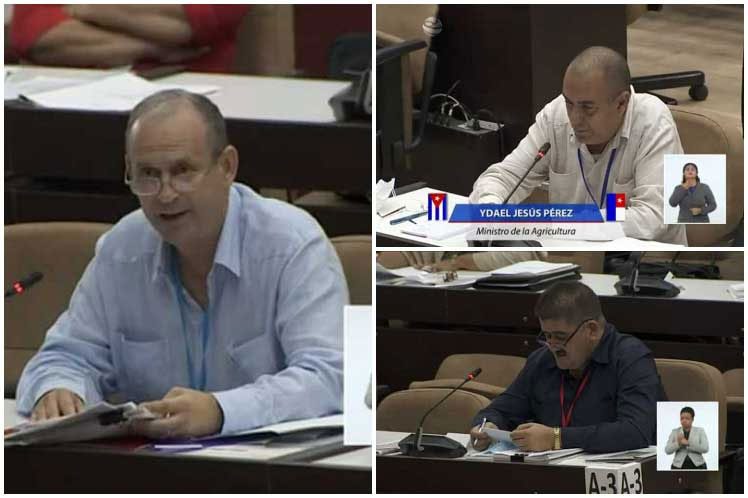Cuba’s Minister of Agriculture Idael Perez told the lawmakers the severe effects suffered with the delivery of inputs for agricultural production, but highlighted the political will that allowed the adoption of 63 measures aimed at boosting the increased food production.
The purpose of those measures, Perez added, is to improve the management of agricultural system, and to get closer to self-sufficiency, so the priority is to roll them out swiftly and efficiently.
According to information released on Thursday, up to the end of September, Cuba had imported $1,348 million, worth of foodstuffs, and the production of rice, corn, milk and pork, among other items, was not fulfilled.
Those data confirmed the need to boost agriculture, for which it is necessary to improve productive linkages and take better advantage of access to foreign currency commercialization and new forms of financing, Perez stressed.
The sector has 400,000 producers and around 5,000 cooperatives, but the biggest challenge, the minister assured, is to achieve greater efficiency in state-run companies and better synergy with private producers.
Our entreprenuers have lacked aggressiveness to capitalize on measures approved for state-owned entities, he acknowledged, and added that there are still some issues with contracts and non-payment to agricultural producers.
A great challenge is to remove loss-making companies, Santiago underscored, who commented that 30 entities are in such condition, out of the 500 that operated in Cuba with negative numbers until the end of September.
We have to stop being a burden for the economy, and contribute not only from the productive viewpoint but also financially, he pointed out.
mh/omr/mem/kmg









